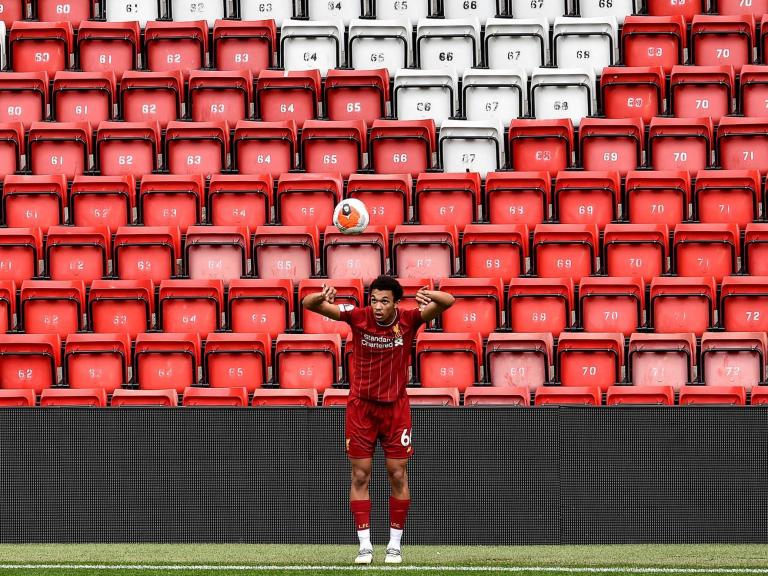The Premier League is looking to conclude the season following a three-month break due to coronavirus
The Premier League will restart tomorrow after a three-month hiatus due to coronavirus.
After the Bundesliga and recently La Liga picked up where they left off, it's now the turn of the Premier League to embrace games behind closed doors.
And while no fans will be permitted, there will still be a sizeable amount of people in attendance up and down the country.
Home advantage has almost halved without fans in terms of results over the first five rounds of fixtures back in Germany: dropping from 43.3 per cent home wins pre-lockdown to 21.7 per cent home wins since resuming the league.
Here we look at those select people needed at each of the remaining 92 fixtures to complete the campaign.
- All the remaining games will be played without fans.
- A maximum of 300 people -- including broadcast staff, written media, commentators, doping officials and scouts -- will be allowed inside stadiums on matchdays.
- Stadiums will be split into red, amber and green zones with each team's red zone pass holders to include 20 players, 12 coaching and medical staff and a further five "essential staff".
- The amber zone will include non-essential staff, such as analysts, while all others will be placed in the green zone.
- Players will undergo COVID-19 tests at their club's training ground before travelling to stadiums for matches.
- Teams will take the field separately, not side-by-side, and games will feature drinks breaks midway through each half.
- Players will line up for the Premier League anthem in a staggered formation rather than form a straight line as before.
- There will be no pre-match handshakes between teams and no handshakes at the coin toss.
- There will be no ballboys or ballgirls and players will have to use spare balls placed around the pitch if a match ball goes into the stands.
- Players must maintain distance during goal celebrations.
- Players cannot spit or clear their noses on the field of play.
- Players must avoid mass confrontations with opponents and cannot crowd match officials.
- Players should use their own water bottles and make use of hand-sanitisers before and after every match.
- Medical staff will wear protective equipment when treating players.
- Substitutes and managers on the bench will not be required to wear masks and players do not have to wear them when entering the stadium or dressing room.
- Teams can have nine players on the bench instead of seven and can make five substitutes during a match, instead of three.
- The technical area for managers will be reconfigured to allow for greater social distancing, as will team dugouts.
- Corner flags, goalposts, substitution boards and match balls will be thoroughly disinfected before games.
- Clubs will be encouraged to travel by plane and avoid staying in hotels before games.
- Clubs are expected to use at least three coaches for matchday travel with drivers who have already undergone novel coronavirus tests.
Reuters contributed to this report



 Africana55 Radio
Africana55 Radio 


